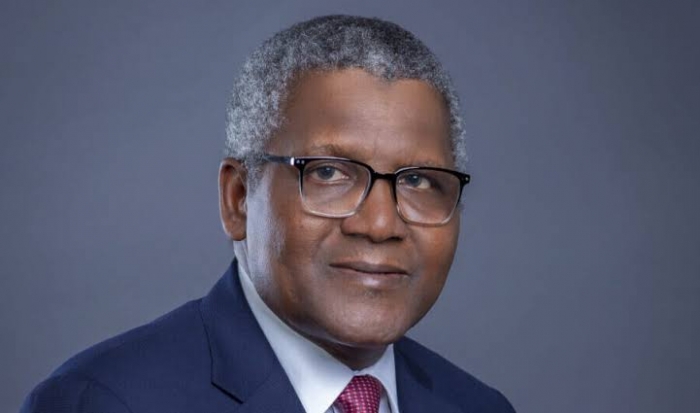Aliko Dangote, founder of the Dangote Petroleum Refinery, has urged the federal government to remove the petrol subsidy, stating that now is the opportune time to take this step. In an interview with Bloomberg TV on Monday, Dangote explained that many countries have already eliminated subsidies, and Nigeria should follow suit.
According to Dangote, subsidies are a complex issue that can lead to inflated prices. He pointed out that government spending on subsidies often exceeds what is necessary, adding that removing them could help alleviate financial pressure.
Dangote also revealed that petrol sold by his refinery within Nigeria would be closely monitored to ensure accurate data on consumption. He highlighted the lack of reliable information on the country’s actual petrol usage, with estimates ranging from 60 million litres per day to much lower figures. Dangote explained that by producing domestically and tracking the distribution, his refinery would help provide clear data and reduce fuel smuggling.
“By tracking trucks and ships, we can ensure that the oil stays within Nigeria, helping the government save money,” he said. Dangote further noted that, despite public perception, petrol in Nigeria is about 40 percent cheaper than in Saudi Arabia, which he believes is unsustainable.
Dangote emphasized that continuing to subsidize petrol is no longer affordable for the Nigerian government. He explained that petrol prices in Nigeria are roughly 60 percent lower than those in neighboring countries, leading to significant smuggling due to porous borders.
“The government simply cannot maintain the level of subsidies it is paying,” he said.
Although the decision to end the subsidy rests with the government, Dangote remarked that it is inevitable that the subsidy will eventually be removed. He added that his company, as a private enterprise, must prioritize profitability, having invested $20 billion in the refinery.
"We built this refinery to make a profit, and the removal of subsidies is a government decision, not ours," he concluded.
